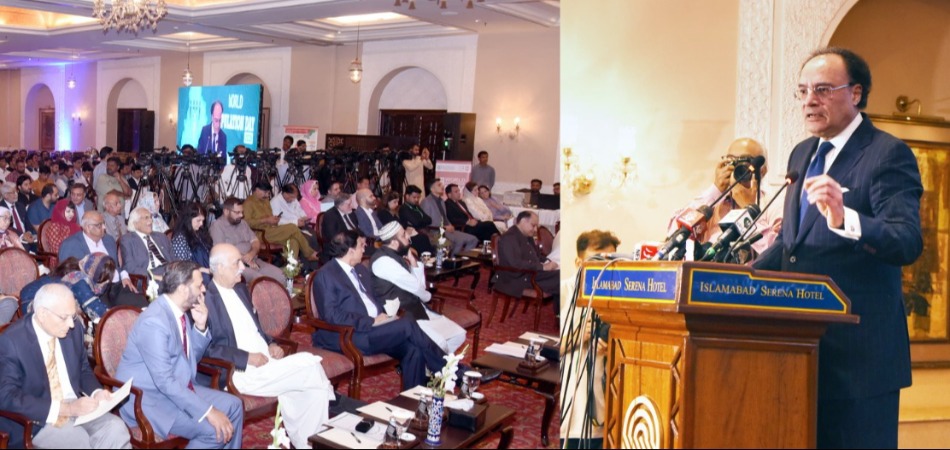Indo-Pak Tensions: A Boiling Cauldron
.jpeg)
Nilam Bano | May 07, 2025 at 04:21 PM GMT+05:00
May 07, 2025 (MLN): Despite global concerns that any conflict between two nuclear-armed nations would be catastrophic, India launched strikes on nine locations in Pakistan and Pakistan-administered Kashmir last night. The attacks, which India claimed were “precision strikes” on terror infrastructure under Operation Sindoor, resulted in the deaths of at least 26 civilians and left over 45 injured, including a child.
The regional tension episode started after a deadly militant assault in Indian-administered Kashmir, which claimed the lives of 26 Hindu pilgrims. Without presenting concrete evidence, India once again pointed fingers at Pakistan and responded with military aggression.
Pakistani authorities strongly refuted India's claims as the strikes hit civilian areas well within internationally recognised borders.
Prime Minister Shehbaz Sharif denounced the move as an “act of war,” vowing a resolute response and calling India a “deceitful enemy.”
Following the air raids, heavy shelling and gunfire erupted along multiple sectors of the LoC. Media reports indicate at least seven Indian civilians were killed overnight by Pakistani shelling, while 30 others were injured. Pakistan, in turn, claimed to have downed five Indian fighter jets, although India has yet to confirm these losses.
Local Indian sources, however, acknowledged the crash of three jets in separate regions of Indian-administered Kashmir.
Diplomatic fallout
Diplomatic relations between the two nations have deteriorated sharply. Labelling the strikes a blatant violation of sovereignty, Pakistan’s foreign ministry summoned the Indian Chargé d'Affaires to lodge a strong protest. It further accused India of violating the UN Charter and warned that such aggression endangered regional peace.
The United Nations has urged both countries to exercise maximum restraint. Secretary-General António Guterres expressed grave concern, emphasizing that a military clash between India and Pakistan would be disastrous.
Russia, which maintains close ties with both countries, also called for de-escalation and condemned all forms of terrorism.
Right after the Pahalgam attack, India suspended the 1960 Indus Waters Treaty which raised serious environmental and humanitarian concerns.
In response, Pakistan suspended its airspace to India. Additionally, India revoked most visas issued to Pakistani nationals.
History of War
This is not the first time India and Pakistan have stood on the edge of war following violence in Kashmir. Over the years, a clear pattern has repeated itself. Here is a brief look at major flashpoints since 1999 that have kept the region on edge:
- May–July 1999 Kargil War: Just months after both nations became declared nuclear powers, Pakistani troops and militants crossed into Indian territory in Kargil. India launched a fierce military response, and under international pressure, especially from the U.S., Pakistan was urged to retreat.
- December 2001 Indian Parliament Attack: Armed militants stormed the Indian Parliament, triggering nationwide outrage. India blamed Pakistan-based groups, and both countries massed troops along the border. War seemed imminent, but intense global diplomacy helped defuse the situation.
- November 2008 Mumbai Terror Attacks: Over three terrifying days, gunmen laid siege to India’s financial capital, killing 166 people. India pointed to Pakistan-based militants and suspended talks, with relations frozen for years.
- January 2016 Pathankot Airbase Attack: Militants breached a key Indian Air Force base. India once again held Pakistan responsible.
- September 2016 Uri Attack: In a pre-dawn ambush, 19 Indian soldiers were killed. India responded with “surgical strikes” across the Line of Control.
- February 2019 Pulwama and Balakot: A suicide bombing in Pulwama killed 40 Indian paramilitary personnel. Days later, India bombed what it claimed was a terror camp in Balakot, Pakistan. Pakistan hit back, and both sides claimed to have downed each other's fighter jets.
- August 2019 Article 370 Revoked: In a unilateral move, India stripped Jammu and Kashmir of its special status. Pakistan responded by downgrading diplomatic ties and halting bilateral trade. For many Kashmiris, it was a moment of profound political loss.
- April 2025 Attack on Hindu Pilgrims: A brutal militant attack killed 26 Hindu pilgrims in Pahalgam. Without waiting for an investigation, India blamed Pakistan and launched Operation Sindoor, striking across the border.
Latest Development
In an emergency meeting convened following last night’s cross-border strikes by India, Pakistan’s National Security Committee (NSC) has authorised the armed forces to respond decisively to the unprovoked aggression.
Chaired by Prime Minister Shehbaz Sharif, the NSC termed India’s assault on civilian areas in Pakistan and Pakistan-administered Kashmir as a blatant violation of international law and sovereignty. The committee condemned the loss of innocent lives and emphasised Pakistan’s right to self-defense.
“The Pakistan Armed Forces have been given full authority to respond at a time and place of their choosing,” read an official statement issued after the meeting. Military leadership assured the NSC that all necessary measures were being taken to ensure the nation’s defense and territorial integrity.
The current situation is perilously close to spiralling out of control. Authorities in Pakistan have declared a state of emergency in hospitals across the country.
While a full-scale war has not been officially declared, tit-for-tat airstrikes, rising civilian casualties, and escalating political rhetoric on both sides have pushed the region to the brink of a wider conflict.
Both nations have fought three wars since 1947, and any miscalculation now could have catastrophic consequences, especially given their nuclear capabilities.
Copyright Mettis Link News
Related News
| Name | Price/Vol | %Chg/NChg |
|---|---|---|
| KSE100 | 134,299.77 290.06M |
0.39% 517.42 |
| ALLSHR | 84,018.16 764.12M |
0.48% 402.35 |
| KSE30 | 40,814.29 132.59M |
0.33% 132.52 |
| KMI30 | 192,589.16 116.24M |
0.49% 948.28 |
| KMIALLSHR | 56,072.25 387.69M |
0.32% 180.74 |
| BKTi | 36,971.75 19.46M |
-0.05% -16.94 |
| OGTi | 28,240.28 6.19M |
0.21% 58.78 |
| Symbol | Bid/Ask | High/Low |
|---|
| Name | Last | High/Low | Chg/%Chg |
|---|---|---|---|
| BITCOIN FUTURES | 118,140.00 | 119,450.00 115,635.00 |
4270.00 3.75% |
| BRENT CRUDE | 70.63 | 70.71 68.55 |
1.99 2.90% |
| RICHARDS BAY COAL MONTHLY | 97.50 | 0.00 0.00 |
1.10 1.14% |
| ROTTERDAM COAL MONTHLY | 108.75 | 108.75 108.75 |
0.40 0.37% |
| USD RBD PALM OLEIN | 998.50 | 998.50 998.50 |
0.00 0.00% |
| CRUDE OIL - WTI | 68.75 | 68.77 66.50 |
2.18 3.27% |
| SUGAR #11 WORLD | 16.56 | 16.60 16.20 |
0.30 1.85% |
Chart of the Day
Latest News
Top 5 things to watch in this week
Pakistan Stock Movers
| Name | Last | Chg/%Chg |
|---|
| Name | Last | Chg/%Chg |
|---|




 MTB Auction
MTB Auction